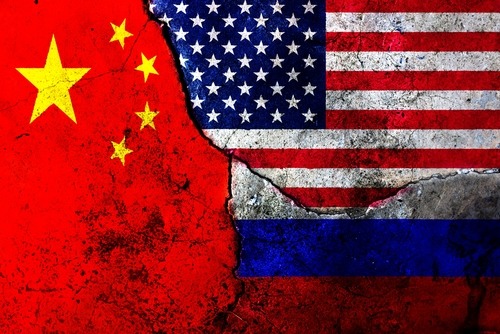
A comprehensive report from the Congressional Commission on the Strategic Posture of the United States found that, on examination, the long-term strategic posture of the United States is flagging amid worsening global security, and pointed to looming threats from China and Russia alike.
The bipartisan commission reviewed both the current and projected threat environment worldwide and dove into an assessment of current U.S. nuclear deterrence capabilities, along with missile defense and a look at space, cyber and conventional military forces and strategy. It also provided recommendations for how to move forward.
In response, U.S. Sen. Roger Wicker, R (MS), ranking member of the Senate Armed Services Committee, lauded the work of the commission and noted that it made apparent that plenty of work is needed on the part of the military – particularly the nuclear forces.
“The findings of this bipartisan report detail the gravity of the situation we face and emphasize that the current trajectory of the U.S. strategic forces are insufficient to deter the looming Chinese and Russian threat,” Wicker said. “The report is also a stark reminder of the significant work needed to expand our nuclear submarine industrial base to increase production and reduce repair time. The details of this report should serve as a wakeup call for our armed forces and the national security community as a whole.”
There were indeed many causes for concern cited in the report. It noted that the nuclear force modernization program is insufficient to meet new threats from Russia and China, and needs to be supplemented if it wants to remain effective; some commissioners went further and called for an increase to the U.S. nuclear stockpile and the number of its delivery systems. In that same vein, they called particularly for more nuclear-powered submarines, but in general, an increased shipbuilding capacity from the Department of Defense at large.
“The size and composition of the nuclear force must account for the possibility of combined aggression from Russia and China,” the report noted. “U.S. strategy should no longer treat China’s nuclear forces as a “lesser included” threat. The United States needs a nuclear posture capable of simultaneously deterring both countries.”
With that, the analysts urged modification to U.S. nuclear force posture to include a range of militarily effective nuclear response options to deter Russian or Chinese limited nuclear use in theater, and to deploy nuclear forces to the Asia-Pacific theater.
“The Commission recommends Congress fund an overhaul and expansion of the capacity of the U.S. nuclear weapons defense industrial base and the National Nuclear Security Administration’s (NNSA) nuclear security enterprise, including weapons science, design, and production infrastructure,” the report said. “Specifically: Congress should fund the full range of NNSA’s recapitalization efforts, such as [plutonium] pit production and all operations related to critical materials.”
While China and Russia were certainly the main threat focuses in the report, concerns were not limited to their borders. The commission also noted that at this point, the United States should be prepared for the possibility of Iran becoming a nuclear state between 2027-2035.
“It is essential that Congress move forward quickly with a plan to provide our military with the resources necessary to restore our nuclear deterrent and rebuild the capacity to find and win two wars if necessary,” Wicker said. “Passing a defense supplemental in the near-term and guaranteeing real growth in the annual defense budget will help us meet this moment. Failing to make these investments now will leave the United States weaker and invite costly new threats from our adversaries.”
Passage of a supplemental could prove tricky, however, given the ongoing quagmire in the House, where the Republican majority remains deadlocked over selection of a Speaker.




